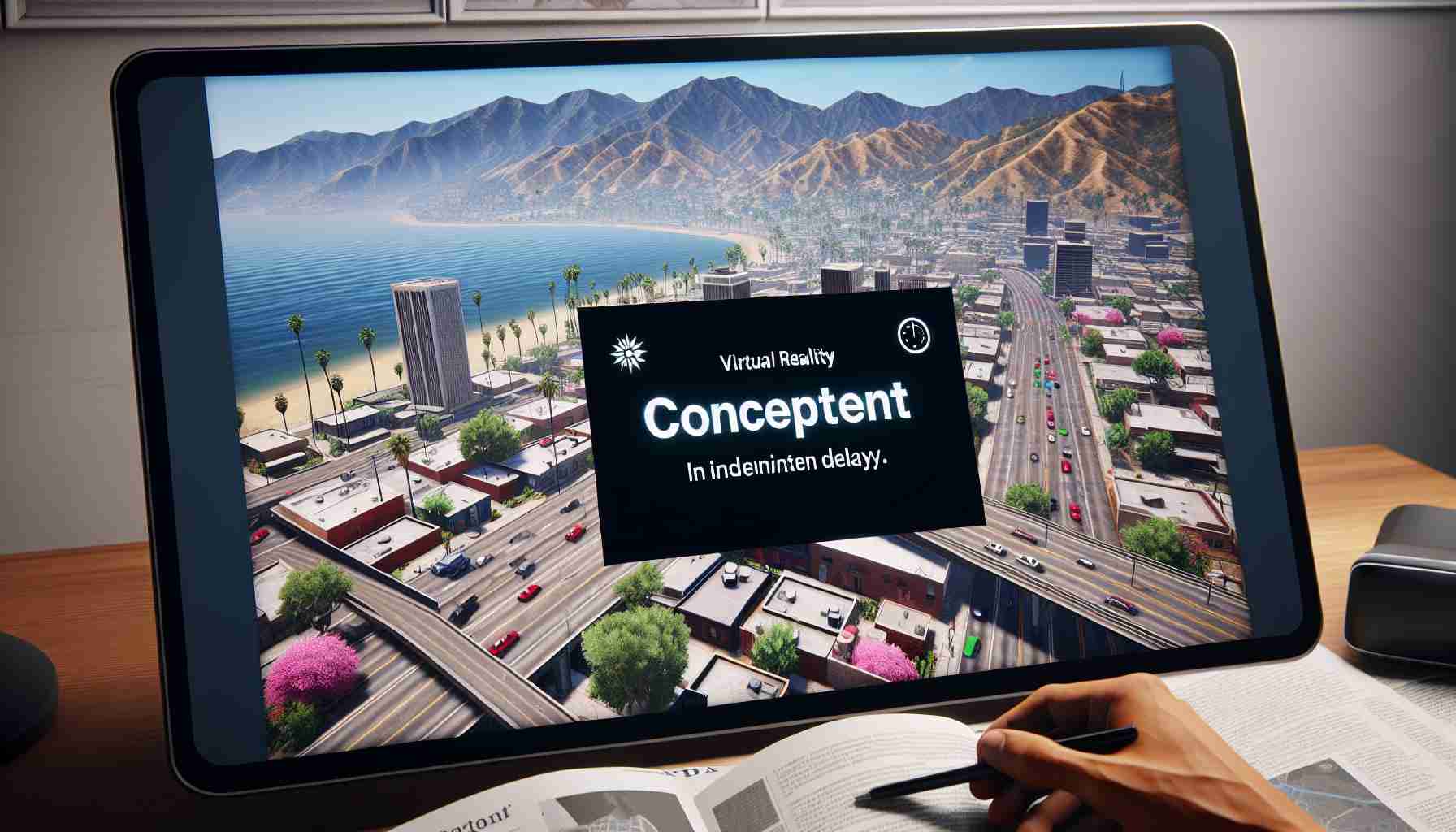Meta’s highly anticipated virtual reality (VR) remake of Grand Theft Auto: San Andreas has hit a roadblock and will be postponed indefinitely. Originally announced during the company’s Facebook Connect event last year, the news generated immense excitement among fans. Despite being described as “a project many years in the making,” Meta did not provide any gameplay footage or release date at the time.
The confirmation of the game’s delay came in response to user comments on a trailer for the forthcoming Meta Quest game, Behemoth, developed by Skydance Games. Meta Quest VR’s official YouTube account responded, stating that Grand Theft Auto: San Andreas VR is currently on hold while they focus on other projects. However, they expressed their eagerness to collaborate with Rockstar, the creators of the original game, in the future.
This setback for Meta comes amidst significant financial challenges within the VR gaming market. Recent reports reveal losses of $16 billion incurred by Meta’s Reality Labs division, which is dedicated to VR development.
Grand Theft Auto: San Andreas VR would have marked Meta’s second venture into VR remakes, following the successful collaboration with Armature Studio and Capcom on the Meta Quest adaptation of Resident Evil 4. Rockstar Games, owned by Take-Two Interactive, would have also been involved in their second VR project, following the release of L.A. Noire: The VR Case Files.
Originally released in 2004 for the PlayStation 2, Grand Theft Auto: San Andreas transports players to the early 1990s in the fictional city of San Andreas. Taking on the role of Carl “CJ” Johnson, players embark on a mission to solve their mother’s murder in their old neighborhood.
While the indefinite delay of Grand Theft Auto: San Andreas VR is disappointing for fans, they can still hold onto hope that the project will eventually see the light of day. Until then, players can immerse themselves in the original game or explore other VR experiences.
Additional Facts:
1. Grand Theft Auto: San Andreas is widely regarded as one of the greatest video games of all time, praised for its open-world gameplay and engaging storyline.
2. The VR remake of Grand Theft Auto: San Andreas was expected to enhance the player’s immersion by allowing them to experience the game’s world in a virtual reality setting.
3. Meta’s involvement in the VR remake indicated their commitment to expanding their presence in the virtual reality gaming market.
4. The delay of Grand Theft Auto: San Andreas VR raises questions about the challenges and complexities of adapting a well-established game for virtual reality technology.
5. The success of other VR adaptations of popular games, such as Resident Evil 4 VR, hinted at the potential market demand for a VR version of Grand Theft Auto: San Andreas.
Key Questions and Answers:
1. Why was the Grand Theft Auto: San Andreas VR remake delayed indefinitely?
– The reason for the delay has not been specified in the article. Meta Quest VR’s response suggests that the project was put on hold to prioritize other projects.
2. Is there a possibility of collaboration between Meta and Rockstar in the future?
– Yes, Meta expressed their eagerness to collaborate with Rockstar on Grand Theft Auto: San Andreas VR in the future.
3. Has Meta faced financial challenges in the VR gaming market?
– Yes, recent reports indicate losses of $16 billion incurred by Meta’s Reality Labs division, focused on VR development.
Key Challenges and Controversies:
1. Adapting a game as vast and complex as Grand Theft Auto: San Andreas for virtual reality presents technical and design challenges that need to be overcome in order to provide a seamless and enjoyable experience for players.
2. The indefinite delay of the VR remake has disappointed fans who were eagerly anticipating the release.
3. The financial challenges faced by Meta’s Reality Labs division raise concerns about the viability and profitability of VR gaming projects.
Advantages:
1. The VR remake of Grand Theft Auto: San Andreas would have offered players a new and immersive way to experience the beloved game.
2. The project would have showcased the potential of virtual reality technology in enhancing gaming experiences.
3. Collaboration between Meta and Rockstar could have brought together the expertise of both companies to create a high-quality VR adaptation.
Disadvantages:
1. The indefinite delay of the VR remake leaves fans uncertain about the future of the project and whether it will ever be released.
2. Financial challenges faced by Meta’s VR division may impact their ability to invest in and deliver future VR projects.
3. The complexities of adapting a game of Grand Theft Auto: San Andreas’ scale and scope for VR could potentially result in technical issues or compromises in gameplay.
Related link: Rockstar Games – Grand Theft Auto: San Andreas



















